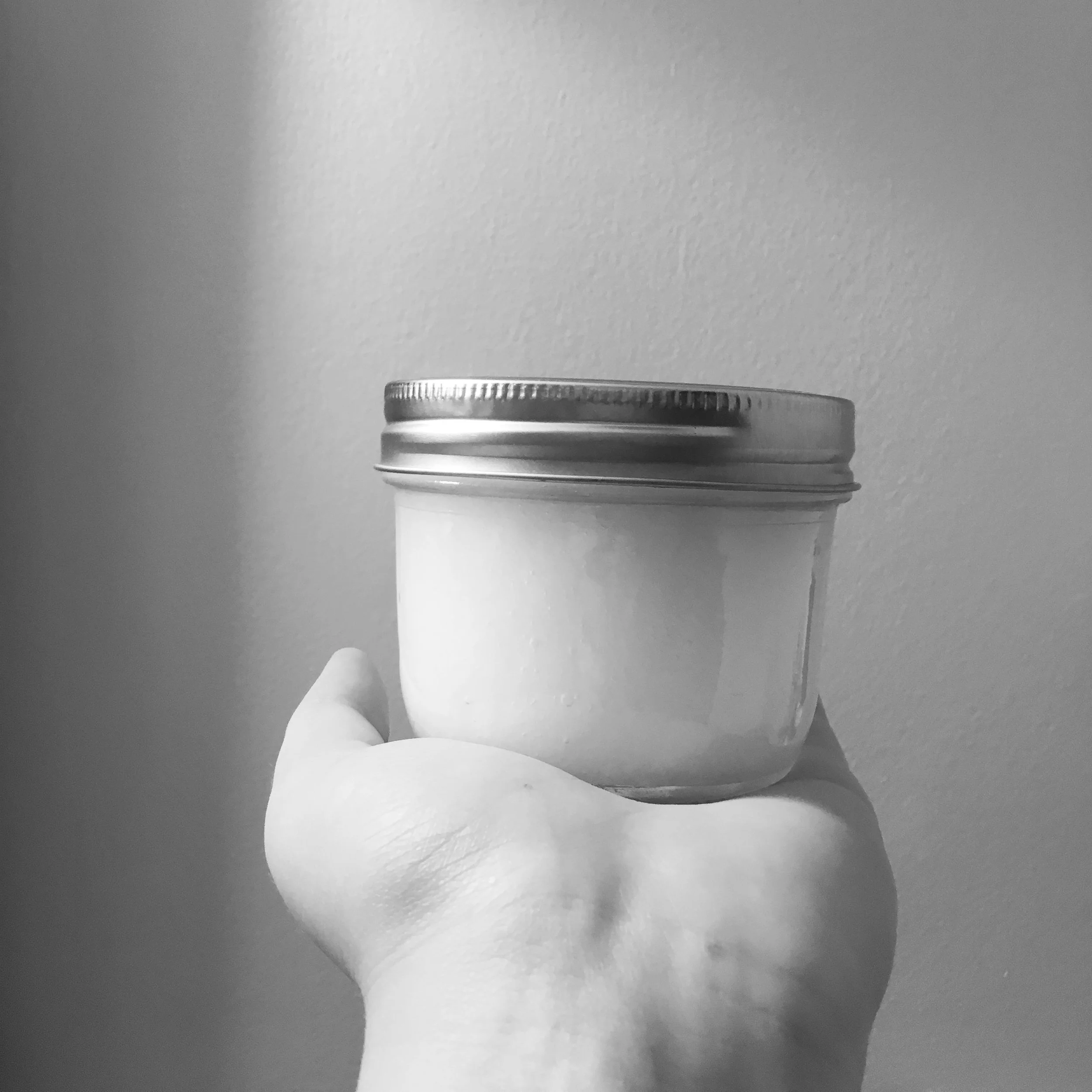I see many parallels between minimalism and zero waste.
In my preparation for living in a tiny home I have gone through several pairing down processes. It's never easy parting with our belongings - we could make endless excuses for why we need 16 iPhone 3 charging cables, cracked tupperware without a lid, 10 year old worn out shoes, and remotes to TV's we no longer own. The list goes on and on. I know this because I've been there. Pairing down is a difficult process but as anything, it get easier with time. I've learned that pairing down is a skill that gets strengthened with practice and careful intention. Luckily I've never had to furnish an entire house or apartment so I haven't had the burden owning an abundance of furniture or decorative objects. Furniture tends to be one of the hardest things to get rid of, 1 because it's cumbersome and can be physically hard to sell, give away, or even move, and 2 it can be mentally difficult to part with something that was bought with hard earned money or passed down from a family member.
But minimalism is about much more than just getting rid of clutter - it's about finding your essentials. It's about quality over quantity. It's about learning how to live a happy life with only the things you truly need. It's about favoring experiences over objects. It's about making intentional decisions. It's about hyperawareness, conscious consumerism, and careful curation of everyday life. And this is where zero waste living comes in to play.
I'm not yet at the point where I'm living with zero waste or where I can gloat about my mason jar sized trash bin, but I have been able to significantly cut down on my waste. The zero waste and minimalism movements have provided me an outlet to embrace my drive to live more sustainability and have guided me toward making more conscious decisions about my everyday life. I'm much more aware about what I'm buying, why I'm buying it, and who/where I'm buying it from. These questions that never crossed my mind before now dominate my every decision.
As a result of these decisions, here are 6 things I love about living with less.
1. Freedom
Living with less clutter, less waste, and less stuff allows me to be much more flexible, more agile. If I were to get a job offer on the other side of the country or given the opportunity to travel around the world I'll be in a much better position to accept knowing I don't have too many things anchoring me to one place. It's the freedom from the burden of owning too much stuff. It's the burden from getting myself into debt with unnecessary spending. It's the freedom to travel, freedom to worry less, and the freedom to feel confident and satisfied in the decisions I make.
2. Deeper connection with the earth
The first time I saw that food and other "waste" could be converted into soil I felt invigorated. It's so empowering to know that I can provide a service to the earth while preventing my food and paper waste from ending up in a landfill. Furthermore, I had never really considered the process of decomposition or the fact that I could personally contribute, playing a vital role in the cycle of life. It was amazing how something so primitive, so essential to the existence of every being on the earth can be so vastly overlooked.
The first time I made pizza dough from scratch it was like a lightbulb switched on. I had never really considered the process of making bread or really any other food, cleaning, or hygiene products for that matter. I had completely disregarded the fact that when I buy store bought products, someone (or something) else is making it. They choose what's in it, how it's produced, how it's packaged, and how it's distributed. I had never considered any of this until I started making my own foods and products from scratch.
It's a magical process learning about the interworkings of the world around us.
3. Awareness
I've never wanted to be someone who kept their blinders on and refused to acknowledge the existence of worldly issues. I understand; however, that for some people this is the only way to keep their peace and continue to live their lives without worry. I'll admit there are times when I do this myself - especially with animal cruelty. Every time I see one of those horrifying commercials showing abused animals in need of rescue I immediately change the channel and force myself to think of something happy to take my mind off it. It breaks my heart so I mask the pain with something that brings me joy. While I recognize that I do this, I make an effort in return to take action to help when I can. All of the dogs my family and I have owned have been rescues - never from breeders, I stopped eating meat when I realized it didn't align with my values, and I refuse to visit zoos because I don't agree with confining and depriving animals for human entertainment. I like to educate myself on issues of animal cruelty, how our electronic waste get's transported to 3rd world countries, and I like to see how my everyday decisions affect the world around me. I like to know that my dental floss may end up wrapped around a seal's neck so I know to cut it down to smaller pieces, or that I want to avoid silk products which are made from boiling silkworms alive (with the exception of Peace Silk). I like to know that it takes an average of 450 years for plastic to decompose, that we're rapidly depleting resources such as Himalayan rock salts, and that 150-200 species are forced into extinction every day. I want to know these things so I can make better informed decisions in my everyday life. Making these informed decisions isn't even an inconvenience, it's simply a different way of doing things. Many times, I find that once I get used to doing things differently, it turns out to be better for me as well as the environment.
4. Healthier
Plastic is everywhere. It's one of the hardest things to get away from in the modern world we live in and will be here long after we're all gone. In an effort to avoid plastic made and packaged products I have resorted to making my own. In making my own products I have begun researching the ingredients used in the products I used every day only to find how toxic and unhealthy they are. I take a lot of pride in, and feel a strong, primitive, earthly connection in making my own products. In doing so, I have complete control over every ingredient, I understand the purpose of each ingredient, and I get to choose the way in which its stored.
Another benefit of avoiding plastic has been the decision to buy and eat local foods. I noticed that much of the food I previously bought was packaged in plastic - including a lot of the produce I was buying. I have researched nearby stores and farms in depth enough to understand whether or not I want to support them in giving them my business. In buying locally produced, organic foods, my food is fresher, unpackaged, and I have the comfort of knowing who and where it's coming from.
5. Saving money
Fighting the urge of giving in to consumerism has allowed me to save a lot of money and headaches in the long run. I have begun investing in quality products that may be more expensive upfront but will last a lifetime thus saving me money later. I am pushing back on purchasing disposable products - an industry model that thrives on the demise of poorly made goods. I invest my money in companies that align with my values so I can feel confident in my purchases.
Being mindful of everything that goes in and on my body has helped me become healthier. By eating organically, avoiding toxins, making well-informed decisions, and choosing quality over quantity ,I've been able to stay much healthier. By doing this, I not only feel great physically and mentally but I'm able to save money on medical expenses.
6. 19% Happier
Before making these changes in my life to live more mindfully, I never considered myself to be an unhappy person. I have always made an effort to find pleasure and happiness in simple things but lately I have felt a different kind of happy. I'm happy because I'm finally moving toward living a life that completely aligns with my values. I'm happy because I've started listening to my body and taking better care of it. And I'm happy because I see how making intentional decisions to improve my life can actually improve the quality of the environment around me.
Thanks for reading,
- Chelsea









Kitchens are riddled with toxic and disposable items - there is so much potential for reducing waste and toxicity!
Disposable products may appear to be cost effective however, the fact that you need to keep buying them indefinitely has proven to be more costly, and the lack of quality in these disposable products have proven to be costly for our health too.